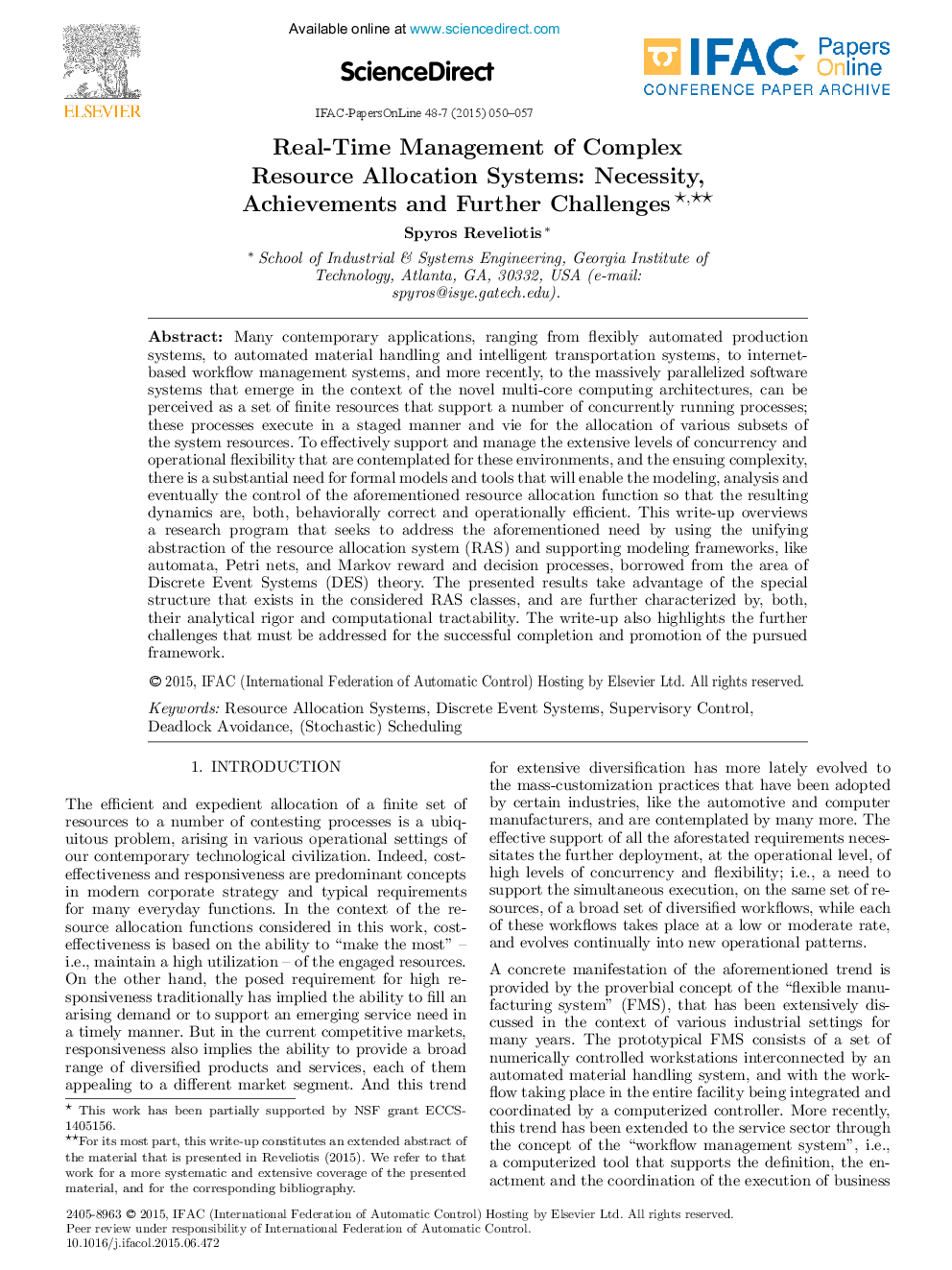ترجمه فارسی عنوان مقاله
مدیریت زمان واقعی مجتمع تخصیص منابع سیستم: ضرورت ها، دستاوردها و چالش های بیشتر
عنوان انگلیسی
Real-Time Management of Complex Resource Allocation Systems: Necessity, Achievements and Further Challenges
| کد مقاله | سال انتشار | تعداد صفحات مقاله انگلیسی |
|---|---|---|
| 47037 | 2015 | 8 صفحه PDF |
منبع

Publisher : Elsevier - Science Direct (الزویر - ساینس دایرکت)
Journal : IFAC-PapersOnLine, Volume 48, Issue 7, 2015, Pages 50–57
ترجمه کلمات کلیدی
تخصیص منابع سیستم - سیستم های گسسته پیشامد - نظارت بر کنترل - بن بست اجتناب - برنامه ریزی
کلمات کلیدی انگلیسی
Resource Allocation Systems; Discrete Event Systems; Supervisory Control; Deadlock Avoidance; (Stochastic) Scheduling

